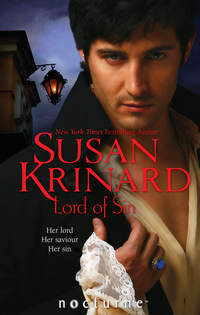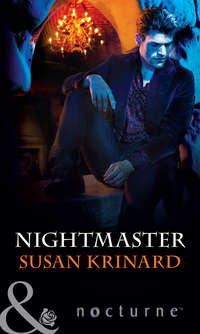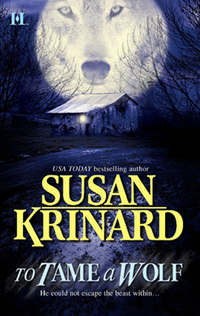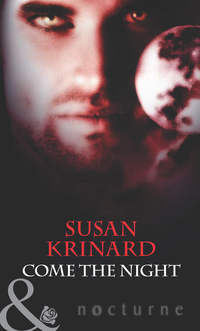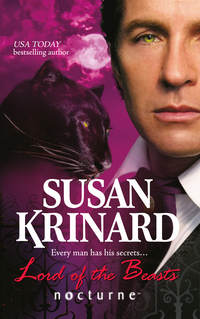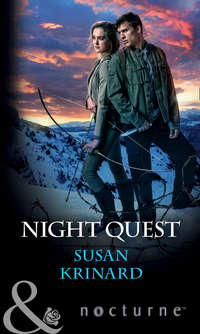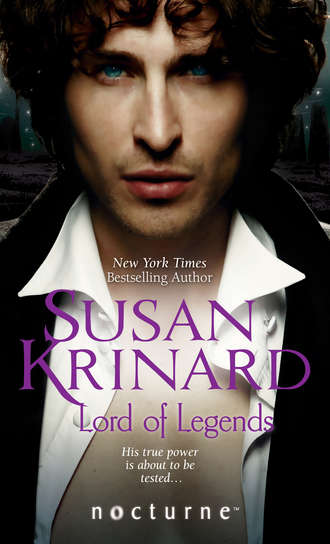
Полная версия
Lord of Legends
She had never been in his suite before. It was his domain, like his study and the billiard room. The furniture was unmistakably masculine, and Donnington had managed to find space on the walls to mount a few more of the smaller animal heads.
Shaking off an uncomfortable blend of disgust and regret, Mariah went directly to his wardrobe. She opened one of the drawers, selected appropriate undergarments—which might have made her blush, had she not seen far worse at the asylum—chose two of the shirts he’d left behind, then moved quickly to the trousers. Stockings were next, along with a pair of walking shoes that had seen hard use. She filched the towels from his washstand, along with a spare shaving kit, a comb and a bar of soap.
She paused, quite in spite of herself, to glance in his mirror, wondering what Donnington had seen in her.
Black, slightly waving hair, now loose around her shoulders. An oval face with rather common blue eyes, straight brows, and a well-shaped nose and mouth. Not pretty, perhaps, but perfectly acceptable.
Was it really my fault that he left? Did he find out about Mama, despite all Papa’s efforts to buy off anyone who might tattle?
Mariah turned away from the mirror and glanced once more about the room. A waistcoat? No, that was hardly necessary now. A jacket. The prisoner would need its warmth in that cold chamber, though it might be pleasant enough outside. She returned to the wardrobe and removed one of Donnington’s hunting jackets, the one he preferred to wear on the estate. Searching for something in which to wrap the clothing and supplies, she found a rucksack tucked in a corner of the room, along with several empty crates and a pair of lens-less binoculars.
Stuffing the clothing into the bag, she returned to her own room. On impulse, she went straight to her small bookcase, where she kept the books she’d loved as a child. Most were volumes of fairy tales, which for months after Mama’s death Mariah hadn’t dared to open.
Now she had some use for them. If the prisoner was capable of regaining his speech—presuming he’d ever had it to begin with—reading to him would surely assist in the process.
I can’t keep calling him the prisoner, she thought. But no appropriate name came to her.
She set down the bag, thumbed through a book of Perrault’s fairy tales and found the story of Cendrillon, Cinderella. When Mariah was very young, Mrs. Marron had liked to collect stories from every country.
Cinderella in the German language was Aschenbrödel. Mariah vaguely remembered a variation on the tale where the main character had been a boy, not a girl.
Aschen. Ash. Ashton was a proper name, especially in England.
“Ash.” She spoke the name aloud, nodded to herself and placed three of the books in the bag. Then she hid the bag under her bed. She would go out again tonight, when the dowager was asleep.
Caution. Discretion …
A knock at the door broke into her thoughts. It was Barbara, the parlor maid, who bobbed a curtsey as Mariah let her in.
“The dowager Lady Donnington requests your presence in the morning room, your ladyship,” she said, never meeting Mariah’s eyes.
Mariah wondered if Vivian had already heard about her conversation with Nola. “What does she want, Barbara?” she asked warily.
Barbara was clearly dismayed by Mariah’s directness. “Mr. Ware has come, your ladyship,” she said.
“Sinjin!” Mariah instantly forgot her worry and smoothed her skirts. Not that he would care about her appearance; he had excellent taste in ladies’ fashions and an extraordinary eye, but he was, after all, her brother-in-law. He and Mariah had been friends from their first meeting.
“Please inform the dowager that I’ll be down directly,” Mariah told the maid, who was off in a flash. Mariah glanced at the mirror over her washstand to make certain her pins were still in place, and then descended to the morning room.
St. John Ware rose to his feet as soon as she entered. He smiled at her … that sly, enigmatic smile that suggested he and she shared a secret no one else would ever know. Mariah nodded to the dowager and greeted Sinjin with an extended hand.
“Mr. Ware,” she said. “How delightful to see you again.”
He rolled his eyes at her unaccustomed formality and turned to Vivian. “The dowager was kind enough to let me in despite the early hour.”
Vivian looked askance at him. “And why should I not welcome my own son at any hour?” she asked crisply.
“Your scapegrace son,” he said. “Or ought that title now go to Donnington?”
The very room froze as Vivian understood his jest. She stiffened, her spine as rigid as one of Donnington’s elephant guns.
“You will not speak so of your elder brother,” she said.
Sinjin managed to seem chastened. “You’re quite right, Mother,” he said. “Please forgive me.”
Forgiveness was not in Vivian’s nature, but she nodded with the graciousness of a queen. “You may ring for tea.”
He moved swiftly to the bellpull and summoned Parish, the butler. Barbara arrived with the tray a short while later. The dowager poured without acknowledging Mariah’s right to do so.
She is still angry about the question I asked her, Mariah thought. But why? Is it merely because it might have implied …
“What brings you to Donbridge, Sinjin?” Vivian asked briskly.
Sinjin examined his fine china teacup. “Why shouldn’t I pay my respects to my own mother?”
“You have never shown much respect for anything, let alone your mother,” Vivian said.
“You quite wound me,” Sinjin said, too lightly to be reproachful. “I have the utmost respect for you, my dear.”
Vivian was incapable of being less than dignified, but she came very close to a snort. “What do you require, Sinjin? A loan for the repayment of your debts?”
Sinjin’s expression grew pained. “I am not so mercenary as you think, Mother.”
She sipped her tea delicately. “If you had gone into the army as your father intended, you would not be in such straits.”
For all the relative brevity of their acquaintance, Mariah knew how much Sinjin despised this topic. “Lady Donnington,” he said pointedly, “must find such a subject tedious, Mother.”
Mariah knew it would have been politic to absent herself, but Sinjin’s eyes begged her to stay, and she wasn’t of a mind to hand the dowager an easy victory. “The army is a fine vocation,” she said. “For those suited to it.”
“Indeed,” Sinjin said. “A vocation to which I could not have done proper justice.”
A teacup rattled in its saucer. Vivian waited while Barbara mopped up the almost invisible spillage where the dowager had set down her cup with a little too much force. “You do proper justice to very little,” she said in a brittle voice. “If your brother were here …”
“But he is not, is he?” Sinjin stood abruptly. “I shall not impose upon your sensibilities any longer.”
Vivian looked almost surprised at the vehemence beneath his veneer of unruffled courtesy. “There is no need for you to go.”
“But I cannot replace the earl as company for you and Lady Donnington,” he said. He bowed with soldierly precision, first to his mother and then to Mariah. “If you will excuse me …”
His stride was brisk as he left the room. Mariah excused herself with equal haste, earning a glare from the dowager, and hurried after him.
“Sinjin!”
He turned, slightly flushed, and doffed the hat he’d already retrieved from Barbara. “Lady Donnington,” he said. “I apologize for my hasty departure.”
“Oh, pish,” Mariah said. “Don’t come all formal with me, Sinjin.”
His anger evaporated into his usual good humor. “How you deal with her every day is beyond my capacity to understand.”
“No it isn’t. You’ve dealt with her all your life.”
He offered his arm, and she took it. They left the house, and Mariah was distracted by thoughts of Ash, so near and yet so far away.
Ask Sinjin. He would be glad to help.
But what if he already knew about the prisoner?
She refused to believe it. Not Sinjin. He was a good man.
As Donnington is not?
“A penny for your thoughts,” Sinjin said, peering at her face with his keen brown eyes. “You look positively pensive, my dear. Are you yearning for Donnington?”
“It’s nothing,” she said, refusing to rise to his bait.
“Ha! Mother won’t leave it alone, will she? How can she blame you?” He laughed. “Then again, how can she not? It’s in her nature. My brother can do no wrong.”
It wasn’t the first time the subject had come up between them, and ordinarily Mariah would have been glad for his sympathetic ear. But self-pity seemed very unimportant in light of this morning’s encounter.
“I do find it a bit odd that she has remained so calm,” he went on, oblivious. “I should have expected her to go a little mad, not knowing where her darling has gone.”
Mariah flinched at the mention of madness. It’s only a word, she thought. But it wasn’t. Not today. Not ever.
“Mariah.”
She looked into Sinjin’s eyes. He wasn’t laughing now. “How has it been with Mother?” he asked. “I am perfectly fine, Sinjin.”
He drew her hand from the crook of his arm and held it in his. “Has she made any sort of comment … any kind of intimation that you … that you might be …”
“Might be what?”
Seldom had she seen Sinjin look as uncomfortable as he did in that moment. “Seeing someone,” he said.
“Seeing someone? I see Lady Westlake, Lady Hurst …”
“A man, Mariah. Seeing a man.”
Slowly she began to take his meaning. “A man?” Her face grew hot. “Do you mean—”
But she really didn’t have to ask. He was talking about an affair. Something she’d only read about in books and heard of in the ghosts of rumors about a society to which she didn’t belong.
“Don’t look so shocked, Merry,” Sinjin said, using her nickname in the familiar way to which they both had become accustomed since her arrival at Donbridge. “You may not have much experience of the world, but I know you aren’t that naïve. Mother’s wanted an excuse to end your marriage to my brother ever since he brought you to England. She’d love to think the worst of you.” He sighed. “She mentioned to me once—just in passing, you understand—that she thought it odd that you spend so much time walking alone in the early mornings. Ridiculous, I know. There is no one in the world less likely to be unfaithful than you.”
But she scarcely heard his reassurances. All she could wonder was how long the dowager had harbored such suspicions. Since the very night Donnington had left? A week after? A month? Did she have someone specific in mind?
“I shouldn’t have spoken up,” Sinjin said, his voice tight with remorse. “I just thought that perhaps it would never occur to you that she might think such a thing. She isn’t quite rational when it comes to Donnie.”
Mariah removed her hand from Sinjin’s. “I’m glad you did,” she said. “I knew there was something more to her anger than blaming me for Donnington’s sudden absence.”
Sinjin puffed out his cheeks. “Well, then,” he said. “You’ve handled the whole thing admirably.” He caught her hand again and lifted it to his lips. “You know you may always count on me for anything.”
She managed a smile. “And you may count on me. I shall send a check for whatever you need.”
If he had been as mercenary as his mother supposed, he wouldn’t have looked so uneasy. “I’m not so badly off as all that. I shall recoup.”
“If only you’d stop the gambling—”
“For God’s sake, Merry. One Lady Donnington is quite enough.”
“I apologize. Sinjin …?”
“Hmm?”
“Are you very busy at Marlborough House?”
“Not terribly. I come and go. Why?”
“If you can spare the time, I might ask for your assistance.”
“With what?”
“I would prefer to explain when I have … certain additional information.”
“How very mysterious.” She could see he was about to make an unfortunate joke before he thought better of it. “Just as you wish, little sister.”
They turned and walked back to the house. After Sinjin had gone, Mariah wrote a letter to her banker in London, authorizing a transfer of funds to the Honourable St. John Ware. At least it was her money to do with as she chose, now that Parliament had passed the act allowing wives to keep at least some of their own wealth.
Somehow she made it through the rest of the day, trying not to think about what Sinjin had told her of Vivian’s suspicions. She wrote a cheerful letter to her father, sketched flowers in the garden and supervised the running of the household as much as the dowager permitted.
But she couldn’t forget. The dowager wanted to end her marriage to Donnington. She wanted to believe that Mariah was capable of being unfaithful to her husband, a notion that offended Mariah deeply.
And yet you already knew you must hide your next visit to the folly, she thought. Even if her reasons had been entirely innocent, based upon her desire to keep anyone else from learning that she had discovered Donbridge’s strange prisoner.
Now she had another reason for concealing her activities.
You are going to see a strange man. Alone.
For compassion. For justice, since some wrong had clearly been done. To Mariah, Ash was simply a patient in need of healing, a human being worthy of assistance and respect. And there would be bars between them … at least until she could determine what had happened and what must be done.
He touched your hand.
She shut the memory away and moved through the afternoon like a wraith. Dinner was an unpleasant affair, with long stretches of weighted silence and the occasional tart comment from the dowager. The elder Lady Donnington stared pointedly and repeatedly at the empty seat at the head of the table. Mariah imagined that she could hear Vivian’s thoughts.
I know why Donnington left you.…
There was no lingering at the table when dinner was finished. Mariah excused herself to her own rooms. Night fell at last, though the sky remained suspended in twilight until past ten.
The dowager was slow about going to bed, but Mariah waited until the house was silent. Then she retrieved her rucksack and raided the linen closet for blankets. The kitchen was dark save for a faint glow in the huge hearth; she entered the dry larder and found half a loaf of bread, along with several peaches from the conservatory. She chose a small knife from a row hung on the wall. She found an empty bottle and filled it with water from the kitchen tap.
She wrapped the food in a kitchen towel and then in one of the blankets, slung it over one shoulder and looped the rucksack over the other. Satisfied that she had the supplies she needed, she lit a lantern and passed quickly through the entrance hall.
It wasn’t a noise that made her stop, nor any sign of movement. But something caused her to look up at one of the heavy ceiling beams over the door, hung with a shield bearing the Donnington coat of arms.
Cave cornum meum: Beware my horn. The motto of the earls of Donnington was a silver unicorn rearing atop a blood-red field, ready to charge at any potential enemy.
There was no earthly reason to shiver. Mariah had seen the shield every time she left the house. But it troubled her now in a way she couldn’t understand.
Beware my horn.
Taking herself in hand, she opened the door and set off across the park. As always, the night was silent; there were faint rustlings of small creatures in the grass and shrubbery, but no indications of human presence. London was far away, and the nearest village was hardly a hotbed of activity so late at night.
She reached the folly in record time. No sound came from inside, and though she knew the heavy walls of the interior chamber were thick, she faced a moment of panic. She dropped the bag and blankets on the portico, rushed to the stone at the foot of the stairs and felt under it frantically.
The key was still there. No one had moved it. Ash must be where she had left him.
Wasting no further time, she unlocked the outer door and set the bag on the chair, laying the blanket with the food on the floor beside it. She hesitated just outside the inner door.
He’s ill, quite possibly mad. What will I do if I can’t save him?
The fear paralyzed her for all of ten seconds. Then she raised the lantern, set the key in the lock and opened the door.
Ash was waiting for her, pressed against the bars, clutching them with the same ferocity. His black gaze met hers, speaking just as eloquently as before.
Help me.
As if of their own accord, her eyes took him in as they had done that morning, cataloging every detail of his body. She had never seen her husband like this. She had glimpsed him once without his shirt, but that—and the brief touch of his lips and clasp of his hand—had been the extent of her experience with his body.
Would he look so magnificent, so powerful, so—
He is a patient. A patient, Mariah.
She turned away to collect the bag and blankets. “I’ve brought you some things you need,” she said. “Clothing, blankets, food. It isn’t nearly enough, but it should do for tonight.”
Without looking up to observe his reaction, she removed the clothing, food and books, and immediately laid the bread and fruit on the kitchen towel. Only then did she pause to consider the narrowness of the gap between the bars.
There would be no trouble, of course, with the bread or fruit. They could be cut. She wasn’t so certain about the bottle.
“You must be hungry,” she said, simply to fill the quiet. She selected one of the peaches, cutting off several small slices. Sweet juice coated her fingers, and she wiped the excess on the towel.
She rose and turned toward the cell. Ash hadn’t moved. Immediately she saw the second problem. In order to give him the food, she must venture within his reach.
You’ve done it before, she told herself. He won’t harm you. But she remembered too keenly how she had felt when he’d run his thumb up and down the back of her hand.
“I am going to give you the fruit,” she said slowly. “Do you understand?”
His dark gaze flickered to the slices of peach in her palm and back to her face. She moved closer. His eyes never wavered. She reached the bars and extended her hand just far enough that he could take the fruit.
He didn’t. Mariah was both puzzled and frustrated. Someone had fed him, though not generously. He wasn’t mad enough to require constant care, like an infant. Perhaps the problem was that he still had no reason to trust her.
“See?” she said, and took a bite of one of the slices. Juice trickled down her chin, and she licked her lips. “Delicious.”
His gaze moved from her eyes to her mouth. The floor gave the tiniest lurch under her feet.
“Here,” she said, pushing a piece through the bars. “Try it.”
He took the fruit as delicately as a butterfly alights on a flower petal. Long, strong fingers lifted it to his lips. With strange fascination, she watched him eat it with a kind of sensual deliberation, as if he were savoring every bite. When he finished, she saw what might have been real pleasure in his eyes.
“More?” she asked. She adjusted the knife to cut another slice, and the blade slipped. She felt a stab of pain as the sharp edge cut into her thumb. Blood welled on her skin.
Ash reached through the bars and grabbed her hand, pulling gently until her own fingers were inside the cell, and drew them into his mouth.
Sparklers exploded inside her head. She gasped. His tongue rolled over her skin as if seeking the wound. She closed her eyes, incapable of moving as he licked between her fingers and laved her thumb almost tenderly.
Her senses returned too late, and she snatched her hand away. Heat flowed through her arm, into her chest, and continued on to her stomach and thighs. Her most secret place ached as it never had before, not even when she had been most in love with Donnington.
But there was another unexpected change in her body. She examined her thumb. It no longer hurt. More remarkably, the cut was gone, leaving only a trace of pink healing flesh where it had been.
Impossible.
She set the peach on the towel, nearly dropping it in her haste. Her fingers trembled as she picked up a chunk of bread and placed it on one of the blankets. She didn’t dare allow Ash to accost her again.
Her second approach was far more cautious. She laid the blanket on the ground, several inches from the bars. Then she backed away and watched.
Lithe as a panther, he crouched and took the bread. He lifted his head and continued to watch her as he ate, not wolfing the food as one might expect him to do, but eating with all the finesse of a courtier at a prince’s table. Mariah put the rest down for him and withdrew again, half-ashamed that she should still be letting her fear rule her.
If it were only fear.
Ash made a sound in his throat. Mariah jumped, recovered, and saw that he had finished the bread. She remembered the water but could think of no way of giving it to him … unless she found a way to open the cell door.
It was unthinkable. She still knew nothing about him and was no closer to learning.
“Are you very thirsty?” she asked.
He lowered his chin, the veil of hair obscuring his eyes, and shook his head. She felt only a little relieved.
Remembering the blanket, she shook it out, refolded it and placed it at the foot of the bars again. Ash didn’t touch it. That uncanny stare continued to follow her as she bent all her attention on selecting one of the books.
Will he understand? Or is this all just wasted effort?
No, not wasted if there was the slightest chance of discovering just how much he could understand.
She sat in the chair, the chosen book in her lap, and set the lantern a little distance from her feet. It cast eerie shadows about the room and provided the bare minimum of light she would need to read. Her hand still tingled from the feel of Ash’s tongue on her flesh, and several times her fingers slipped from the pages.
At last she found her place. She cleared her throat.
“‘East of the Sun and West of the Moon,’” she read aloud.
Ash cocked his head, dropped into a crouch against the wall nearest the bars and let his hands dangle over his knees. As she began to read about the girl whose destitute father had given her to a mystical white bear in exchange for wealth and comfort, she began to wonder why she had chosen this tale, in particular, of all those in the book, or why this book of the three she had brought.
And she wondered—as she related how the girl had been visited every night by the same handsome prince, only to be deserted each morning—why, instead of the great white bear, she saw another creature, pale and elusive as a ghost, a beast very much like a horse but a thousand times more beautiful, his eyes black as a moonless night, his broad forehead topped by a glittering spiraled horn.
Startled, Mariah lost her place and looked at Ash. He was listening intently, but otherwise neither his posture nor his appearance had altered.
The Donnington coat of arms. Why should it so vividly come to mind at this moment? No one could have looked less like such a magical creature than Ash. It was certainly beyond any possibility that he should guess what fancies tumbled through her mind, and he looked entirely unresponsive to the story she was reading.
He doesn’t understand. How shall I ever hope to—
Suddenly he stood, moved to the bars and opened his mouth. His lips moved without producing any sound, but he pointed at the book and then gestured toward Mariah’s face.




